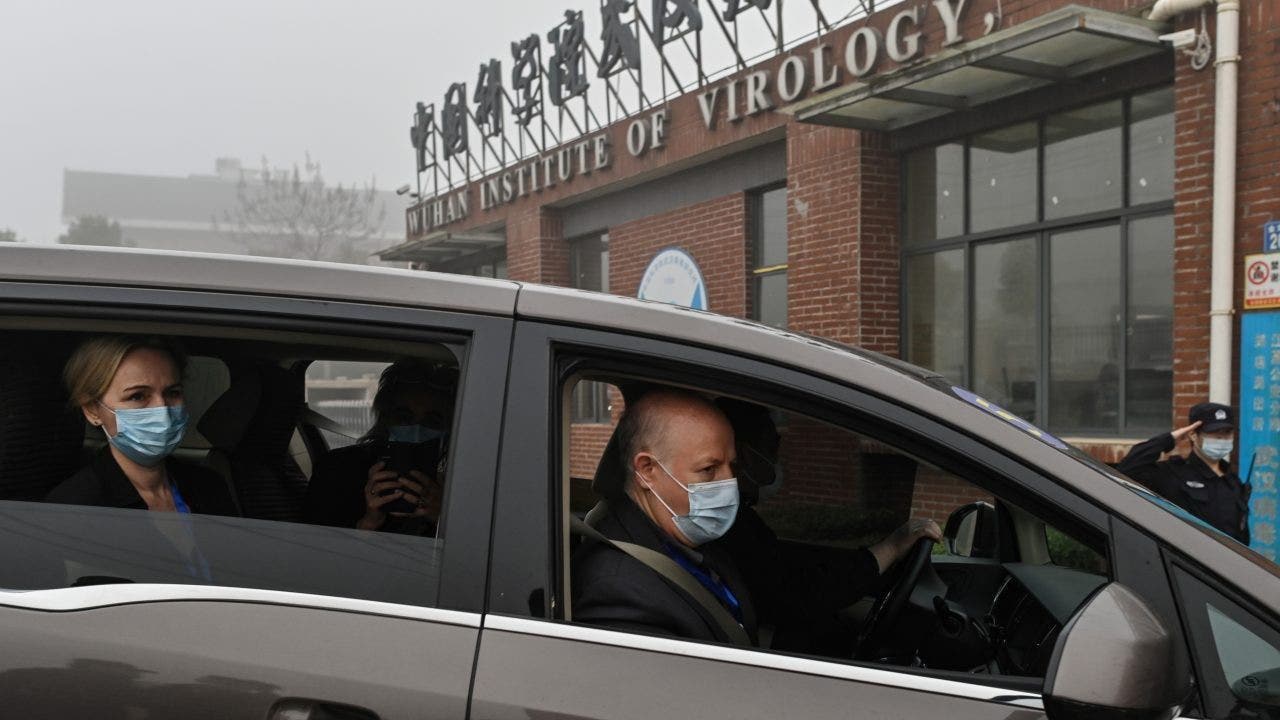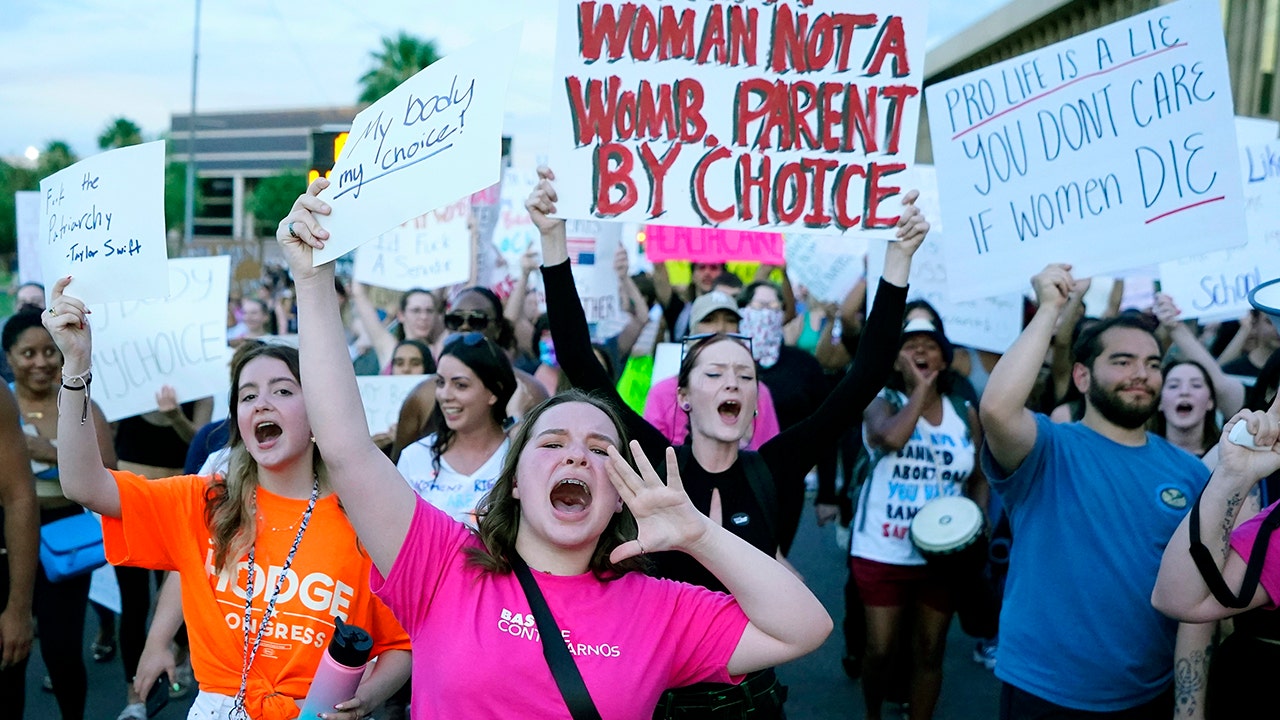Austin, TX
Austin and Florence, Italy, sign ‘historic’ agreement

AUSTIN, Texas — The City of Austin and Florence, Italy, have partnered to “promote economic growth, cultural exchange and global connectivity” between their communities, an official announcement says. The “historic” agreement the two cities signed makes way for business collaborations. Florence is the capital of Italy’s Tuscany region.
Mayor Kirk Watson of Austin and Mayor Dario Nardella of Florence signed off on the Protocol of Cooperation Agreement to “share knowledge, exchange best practices, and explore new avenues of collaboration,” according to a news release.
The partnership between Austin and Florence could have a great impact on both cities’ communities. Residents and businesses could see some positive change come about with this alliance.
“I am thrilled to see the Protocol of Cooperation Agreement between Austin and Florence come to fruition. By building bridges across continents, we are strengthening global connections and paving the way for a brighter future,” explained Mayor Watson. “Together, Austin and Florence will forge a strong and lasting bond, paving the way for a dynamic future of collaboration and friendship.”
The collaboration coincides with the expansion plan of Austin’s Economic Development Department. Per the release, Austin wants to expand its global reach and form significant bonds with cities everywhere.
“We are honored to forge this Protocol of Cooperation Agreement with Austin, a city known for its vibrant spirit and innovation,” Nardella said. “Florence is excited to embark on this journey with Austin, as we work together to build a stronger foundation for growth and mutual development between our two remarkable cities.”
For more information about the international business exchange between Austin and Florence, visit this link.

Austin, TX
Amid Protests of Students, Faculty, and Staff, the State Tightens Its Grip on the University of Texas at Austin

In April, state leaders’ attempted stranglehold over the University of Texas at Austin, Texas’s premier public university, came to a head in several ways. The month began with the university laying off dozens of employees who formerly worked in positions that dealt with diversity, equity, and inclusion (DEI) programs. The month ended with state troopers marching on campus to disrupt anti-war protests at the direction of Gov. Greg Abbott and with the approval of UT Austin President Jay Hartzell.
In this week’s Hotline, we dive into this dark month at Texas’s flagship university.
State, City, & University Police Assail, Arrest Peaceful Anti-War Protesters
Over the past two weeks, hundreds of peaceful protestors, many of them UT students, have been arrested for protesting the war in Gaza and demanding an end to the university’s and the nation’s involvement in the conflict.
Last Wednesday, a coalition of student groups, including the Palestine Solidarity Committee, organized an event on UT’s south lawn to protest the war in Gaza. Event organizers referenced the encampments that have occupied other universities like Columbia, Yale, and Brown, but there was no evidence that this group was connected to groups on those other campuses, apart from the organizing inspiration. The schedule for UT’s event included peaceful actions: teach-ins, pizza breaks, and an art workshop.
A listed demand of the protesters was for the University of Texas to divest from companies that they view as supporting the war in Gaza. The University of Texas’ endowment, totaling $68 billion, is the largest of any public university and the fifth largest of any university system generally. Students have taken issue with the endowment’s investments in companies that manufacture weapons, including Lockheed Martin, Raytheon, BAE Systems, and others. Because weapons produced by these companies and used by the Israeli military have resulted in the deaths of civilians, protestors claim that the University of Texas is complicit in these tragedies and demand divestment.
However, a state law from 2017 that forbids Texas public investments from boycotting Israel seems to forbid such divestment.
Protestors at UT-Austin, who were told by the university to cancel the protest because of a “declared intent to violate our policies and rules, and disrupt our campus operations,” were met with a large police presence, declaring that the protest was unlawful as students didn’t have the proper permits to protest. Campus police officers initially seemed to be willing to negotiate with the protesters, but dialogue seemed to end when Texas Department of Public Safety (DPS) officers arrived at the scene dressed in riot gear. State police quickly moved to break up the protests. Police arrested 57 people present at the protest, including a photographer for FOX 7 News who was covering the incident. All those arrested were released the following morning.
It was later revealed that Hartzell had invited DPS onto campus to break up the peaceful protests. Abbott, who directs DPS, supported the arrests on social media. In his comments, Abbott took issue with the content of the protests, not the manner in which they were done. In the United States, the content of protests is protected by the First Amendment.
Protestors were arrested for trespassing on university campus because they were directed to leave due to not having a permit to hold the event, but the university had previously allowed similar protests to occur in the same location and the same manner without a permit. Similar protests were held at public universities across Texas, including Texas State University and the University of Texas at Dallas, but these protests were not met with a similar police presence.
Protestors reconvened the next day but were not met with a police presence, and the protest continued peacefully as planned. On this second day, the protest was much larger than the day before. At this protest, many community leaders spoke, including Congressman Greg Casar (D-Austin), and condemned the police action. UT-Austin AAUP President Pauline Strong also spoke at the protest. She announced that UT-Austin AAUP was collecting signatures from faculty to call for a vote of no confidence in Hartzell for bringing state police to campus. Thus far, they have collected over 600 signatures.
This week, on Monday, the protests continued and were met by hundreds of law enforcement agents. After protesters refused to vacate the south lawn despite officers’ demands, officers began arresting protestors one by one and soon broke up the encampment. The protesters were assailed with pepper spray and flash bangs.
In response to the events this past Monday, the House Democratic Caucus released a letter explaining to Democratic members what transpired. Ali Zaidi, the executive director of the House Democratic Caucus, penned the letter and was present to observe the Monday protest. Zaidi explained that he and Rep. Gina Hinojosa (D-Austin), who was also in observance of the protest, felt the effects of the pepper spray used on the protestors, despite being yards away. The letter declared, “It is our belief that this behavior by law enforcement created further chaos and harm to the health and well-being of students which must not go unaddressed.”
Students had planned to resume protests Wednesday but postponed the protest until this coming Sunday.
Employees and Students Fight Back Against Anti-DEI Efforts
In a previous edition of the Hotline, we explained how an estimated 60 employees at UT Austin and 20 employees at UT Dallas were either demoted or given termination notices. These affected employees, which included both faculty and staff, previously worked in positions that related to DEI initiatives but had since been reassigned to new positions to comply with Senate Bill 17, which banned DEI initiatives. These layoffs occurred despite the fact that the legislators who sponsored SB 17 publicly made assurances that employees in DEI positions would not be terminated.
Since these terminations and demotions were announced, a wide public outcry, from within the UT community and from without, has emerged, demanding that these termination orders be reversed. During the week following the dismissals, state legislators joined the Texas NAACP and Texas AAUP-AFT at a press conference at the Texas AFL-CIO headquarters denouncing the layoffs. The state legislators present were Rep. Ron Reynolds (D-Missouri City), chairman of the Texas Legislative Black Caucus, Rep. Gina Hinojosa (D-Austin), whose district includes the UT Austin campus, and Rep. Sheryl Cole (D-Austin).

The 60 affected employees mostly occupied student services positions that supported students outside of their academic pursuits. In addition to the affected employees themselves, students are also victims of this move.
Students are fighting back against these layoffs. Over the intervening weeks since the layoffs were first announced student groups, such as Texas Students for DEI, which has been active at campuses across the state in opposition to the state’s attacks against DEI, and individual students began posting the hashtag #NotOurTexas on social media, as a condemnation of the layoffs. Post-It notes with the message #NotOurTexas were also left in prominent locations around UT Austin campus, including the university’s iconic fountain.
This past Monday, a coalition led by the Texas State Employees Union (TSEU), in concert with Texas AAUP-AFT and the Texas AFL-CIO, rallied on UT Austin’s campus to demand that the university’s actions be reversed. Austin City Council members Vanessa Fuentes and Zohaib “Zo” Qadri, whose district includes UT’s campus, as well as Texas AFL-CIO President Rick Levy and UT Austin AAUP executive board member Karma Chavez, spoke at the rally in support of the affected employees. Hundreds of students, faculty, staff, and community members joined the rally.

The next chapter in this saga is uncertain. Many of the affected employees are scheduled to be officially terminated after their mandatory 60-day termination notice expires. Senate Education Committee Chairman Brandon Creighton’s letter to Texas public universities, which kicked off these layoffs, demanded UT Austin send representatives to a committee hearing to detail compliance with Senate Bill 17 in May, but the date of the hearing has not been set. Additionally, the Senate was tasked in Lt. Gov. Dan Patrick’s interim charges with studying the implementation of SB 17. This interim hearing will also likely take place over the summer.
Austin, TX
Texas attorney general threatens Austin over City Council's effort to protect health care for transgender people – Austin Monitor

Shortly after City Council acted Thursday to protect transgender people from discriminatory health care laws, Attorney General Ken Paxton issued a threatening statement, vowing to “consider every possible response to ensure compliance” with state law prohibiting gender-affirming care for minors.
Against this backdrop of escalating anti-trans rhetoric within the Republican Party, Council passed a resolution to protect the health, welfare and safety of trans and nonbinary people, as well as those who provide care or assist in facilitating gender-affirming care.
The resolution, which passed on a 10-1 vote, with Council Member Mackenzie Kelly voting no, is significant given recent developments in Texas such as the 2023 law banning gender-affirming health care for youth and Gov. Greg Abbott’s insinuation last month that trans teachers should be prohibited from wearing clothing that aligns with their gender identity.
Council Member Chito Vela sponsored the resolution and noted before the vote the dangers LGBTQIA+ people face in their daily lives. He thanked the speakers, “especially given the intimidation tactics used by some opponents (who) apparently sent armed individuals to intimidate supporters as they entered City Hall. That’s very disappointing and troubling,” he said. “Violence should not be a part of, or even threats of violence, should not be a part of our political discourse.”
The resolution directs that no city personnel or resources be used to investigate, prosecute or impose penalties on people seeking transgender health care, and that Austin police should make investigating such cases their lowest priority.
Many members of the LGBTQIA+ community and allies spoke in support of the resolution, while others spoke against the measure and based their opposition on either religious views or the likelihood that the state would punish Austin, as later evidenced by Paxton’s statement.
Speaking in support, Morgan Davis, a transgender man who serves on Austin’s Human Rights Commission, grew emotional when they recounted what it was like working as an investigator for Child Protective Services at a time when the agency was directed to look into reports of minors receiving gender-affirming care. Davis resigned instead, on grounds that “I took an oath to protect children. … Good people lost their jobs because they could not morally continue” to investigate trans kids, Davis said.
Before casting a dissenting vote, Kelly said that Austin, as a home rule city, “does indeed have a significant degree of autonomy. However … our autonomy should not be construed as a license to continually undermine state law. Repeated actions like this by our Council not only undermine the rule of law but also invite significant cost of litigation, which diverts valuable and limited city resources away from other critical services.”
Mayor Kirk Watson asked to be added as a co-sponsor to Vela’s resolution prior to the vote. Co-sponsors included Council members Ryan Alter, Zo Qadri, José Velásquez and Vanessa Fuentes. A Watson aide said the mayor would not comment on Paxton’s statement. Vela’s office did not respond by press time.
Photo by Emgann444, CC BY-SA 4.0, via Wikimedia Commons.
The Austin Monitor’s work is made possible by donations from the community. Though our reporting covers donors from time to time, we are careful to keep business and editorial efforts separate while maintaining transparency. A complete list of donors is available here, and our code of ethics is explained here.

You’re a community leader
And we’re honored you look to us for serious, in-depth news. You know a strong community needs local and dedicated watchdog reporting. We’re here for you and that won’t change. Now will you take the powerful next step and support our nonprofit news organization?
Austin, TX
Data Center Boom Threatens Texas Power Grid – Reform Austin

It’s not even summer yet, and the Texas power grid is already straining under demands because of high temperatures. One consistent worry is that the increasing number of data centers in the state may make it even harder for the electrical infrastructure to hold up once Texans start turning their air conditioning on full blast.
Data centers are large warehouses full of computer servers that keep the digital world running, everything from finance to social media. Texas has been aggressively luring data centers to be built in the state for most of a decade, drawn by the prestige of having tech companies like IBM and Amazon. Currently, Texas has 278 of them, with more being built.
The centers are also massive power drains. Data centers consume about 1,000 kilowatt-hours per square meter (ten times that of the average American home), and Texas has over 22 million square feet of data center space. Computing power is increasingly eating up a percentage of every state’s electricity generation.
Which is why many states are starting to rethink having these centers at all. Lawmakers in Connecticut, South Carolina, Georgia, and Virginia are questioning whether the tax breaks offered to data center builders are worth the expense. The centers do not generally translate into local jobs the way similar-sized facilities in industries like manufacturing do. Typically, high-paying positions at the centers go to relocating employees, with locals only able to secure janitorial and other maintenance work. Texas offers an exemption on sales tax for data center equipment over $200 million so long as the company promises to provide at least 20 above-average wages. That means that the state is trading at least $16.5 million for those jobs.
Meanwhile, the voracious appetite of the data centers is demanding more and more energy, especially as the AI boom adds to the need for power. According to the Electricity Reliability Council of Texas, data centers use 4 percent of the Texas grid, a number that will at least double by 2030.
Right now, it is the maintenance season for the Texas energy industry, which explains some of the strained grid when temperatures are barely around 90 degrees. However, there are some specific problems on the horizon. Many of these data centers not only want power, but they also demand renewable energy for both tax credits and prestige. Texas generates a large amount of renewable energy, but solar and wind still have poor storage capacity. That leaves the windmills and panels bespoke to these giant centers when in use and the industry having to rely on generators when it’s cloudy or calm.For another, Texas remains on its own power grid that can’t draw on other states when demand is high. Instead, we have a system where ERCOT appeals to the public to voluntarily reduce their usage during crunches, something that has mixed results. ERCOT can’t order a data center to shut down to prioritize residential and emergency power users, but they can offer to pay them to stop operating for awhile. It’s one more cost added to what data centers are draining from the state.
-

 News1 week ago
News1 week agoLarry Webb’s deathbed confession solves 2000 cold case murder of Susan and Natasha Carter, 10, whose remains were found hours after he died
-

 World1 week ago
World1 week agoHaiti Prime Minister Ariel Henry resigns, transitional council takes power
-

 News1 week ago
News1 week agoFirst cargo ship passes through new channel since Baltimore bridge collapse
-

 World1 week ago
World1 week agoUS secretly sent long-range ATACMS weapons to Ukraine
-

 World1 week ago
World1 week agoSpanish PM Pedro Sanchez suspends public duties to 'reflect'
-

 News1 week ago
News1 week agoAmerican Airlines passenger alleges discrimination over use of first-class restroom
-

 Movie Reviews1 week ago
Movie Reviews1 week agoHumane (2024) – Movie Review
-

 Education1 week ago
Education1 week agoVideo: Johnson Condemns Pro-Palestinian Protests at Columbia University



















